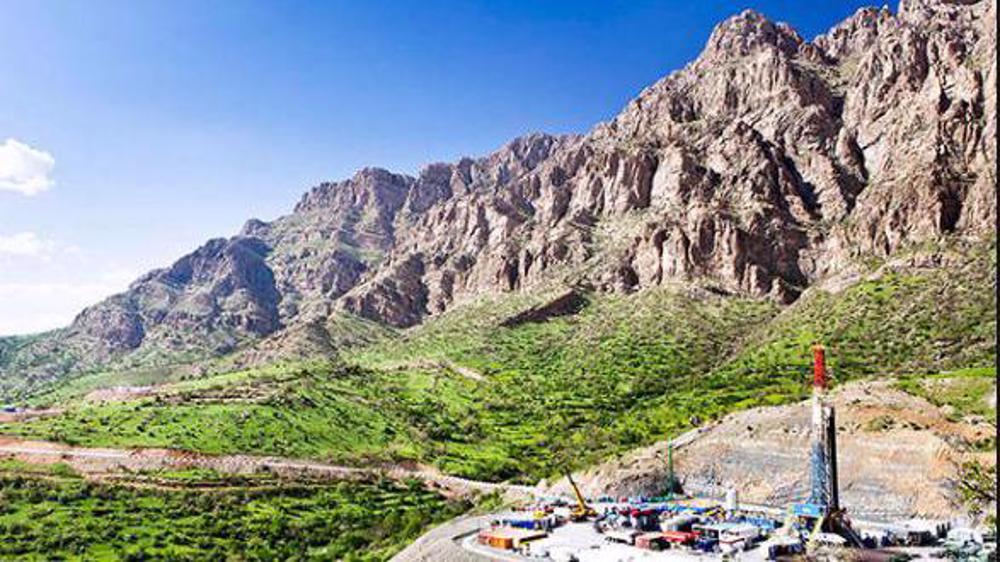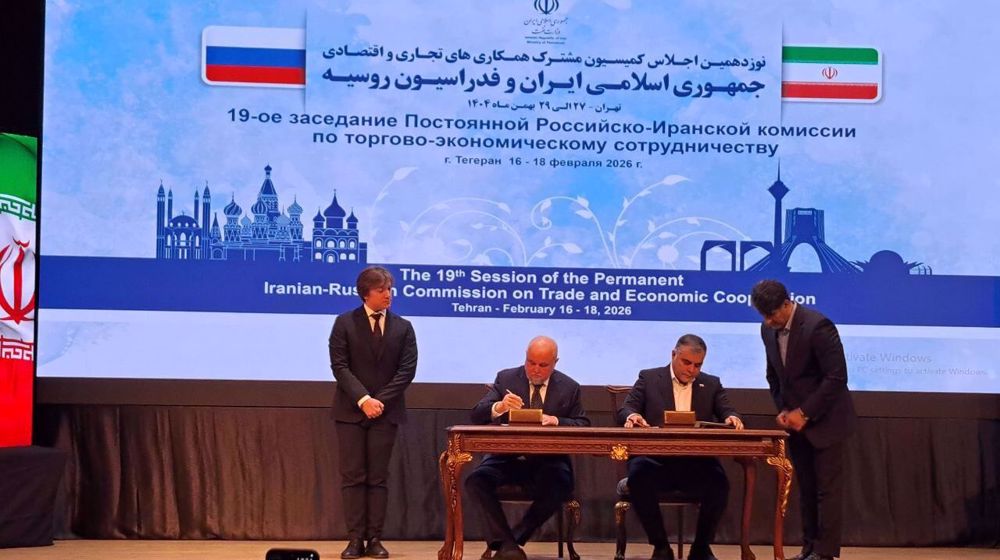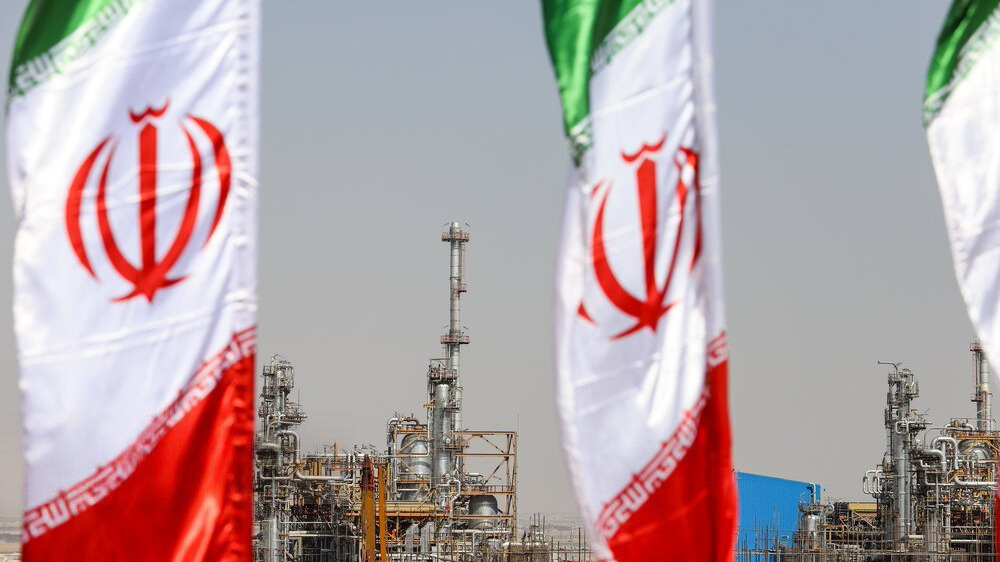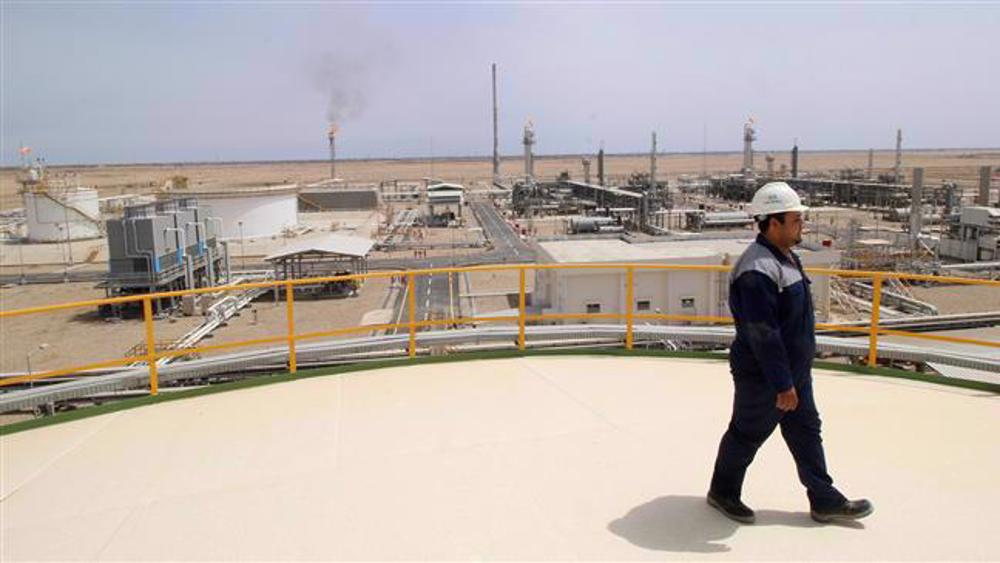US wants Iraq to tap Kurdish gas to cut Iran reliance
A US government official says Iraq must take advantage of gas production in its semi-autonomous Kurdistan region to stop energy imports from Iran, sounding out Washington’s latest pressure on Baghdad to part ways with Tehran.
Iraq relies on Iran for natural gas that generates as much as 45 percent of its electricity. The US is pressuring Iraq to sever ties to Iran, enlisting American companies and allies such as Saudi Arabia to develop alternatives and drive a commercial wedge between Baghdad and Tehran.
The US government oversaw the signing of several energy agreements during Iraqi Prime Minister Mustafa al-Kadhimi's visit to Washington in August. Several US companies clinched deals worth up to $8 billion with the Iraqi oil and electricity ministries.
US Deputy Secretary of Energy Mark Menezes, however, claimed that the United States was “a steadfast champion of Iraqi sovereignty” and accused Iran of trying to undermine it, commodity price reporting agency S&P Global Platts reported Monday.
"The more that Kurdistan develops its gas resources and the closer it gets to being a regional energy hub the less dependent federal Iraq will be on Iranian gas imports," he told a virtual Kurdistan conference organized by the US-Iraq Business Council.
The Kurdistan Regional Government in Erbil has long clashed with Baghdad over its oil sales without coordination with the Iraqi government and demanding a bigger share of federal revenues. The US often sides with the local Kurdish administration and is even regarded as a provocateur of the dispute with Baghdad.
The local prime minister of the Kurdish region Masrour Barzani told the virtual conference that the Kurdistan Regional Government was ready to export gas to the rest of Iraq.
"We hope to become a regional hub for gas production and storage with plans to export to other parts of Iraq and beyond," Barzani said.
The official, however, admitted differences with the Iraqi federal government.
"We are working hard to ensure that our relationship with the federal government in Baghdad is fair and delivers a real outcome," Barzani said. "This is not always straight-forward and we have our differences. But, I am committed to resolving our outstanding issues including around the KRG's share of the federal budget."
In April, former Iraqi oil minister Thamer Ghadhban and officials from the Kurdistan region in northern Iraq discussed Baghdad's potential use and investment in Kurdish gas, but talks didn't lead to any concrete steps.
Besides importing 38 million cubic meters of Iran’s natural gas to power its electricity generation, Iraq buys 1200-1500 megawatts a day of electricity from the Islamic Republic.
In addition to natural gas and electricity, Iraq imports a wide range of goods from Iran including food, agricultural products, home appliances, and air conditioners.
Iraqi officials have complained that American demand to distance itself from Iran acknowledges neither Iraq’s energy needs nor the complex relations between Baghdad and Tehran.
In August, Iraq’s oil minister Ihsan Abdul-Jabbar said his country planned to produce its own gas to meet domestic needs, but imports from Iran would continue for the next five years.
Iraq's finance minister Ali Allawi, however, said later Baghdad could "significantly" reduce its heavy reliance on Iranian energy imports by as soon as next year by linking up with the Persian Gulf power grid.
“This has been going on for several years now, it is unlikely we can find a short-term substitute, but a medium-term effort can be done by linking the Iraqi grid to the Persian Gulf grid,” Allawi told the Atlantic Council, an American international affairs think tank,. “The dependence on Iranian electricity and energy will begin to trail down significantly sometime next year.”
By trying to keep Iran out, the US government has sought to expand the involvement of American energy companies in the oil-rich Iraq. In 2018, the Trump administration reportedly warned Iraqi officials to forgo a $15 billion power generation deal with Germany’s Siemens and award it to General Electric instead.
According to Bloomberg News, senior US officials warned former Iraqi prime minister Haider al-Abadi at the time that signing the deal with Siemens would seriously jeopardize Iraq’s relations with the United States.
The US Department of Energy said during Prime Minister Kadhimi’s visit to Washington that American energy companies Honeywell International, Baker Hughes, General Electric, Stellar Energy and Chevron had signed commercial agreements with the Iraqi sides.
The Trump administration blacklisted Iran's energy industry in late 2018 following its unilateral withdrawal from an international nuclear deal with the Islamic Republic.
However, it has had to grant Iraq sanctions waivers to allow the Arab country to keep paying for electricity imports from Iran.
The last waiver was given last week, but the period was reduced to 45 days from the prior 60-day extension.
“The waiver ensures that Iraq is able to meet its short-term energy needs while it takes steps to reduce its dependence on Iranian energy imports,” a spokesman for the US State Department announced.
The US waivers usually last 120 days, but the period was reduced to 60 days in the summer after Pompeo intensified pressure on Iran.
VIDEO | Press TV's news headlines
VIDEO | Iran will not 'capitulate' since it has military surprises for US
China overtakes US as Germany’s top trading partner
VIDEO | Displaced Gazans struggle to find clean water amid Ramadan
VIDEO | Pakistan strikes militant camps along Afghan border after suicide bombings
Iran FM: Chance still exists for win-win solution to nuclear issue
Denmark rejects Trump's plan to send US hospital ship to Greenland
US Secret Service kills man trying to enter Trump’s Mar-a-Lago estate














 This makes it easy to access the Press TV website
This makes it easy to access the Press TV website